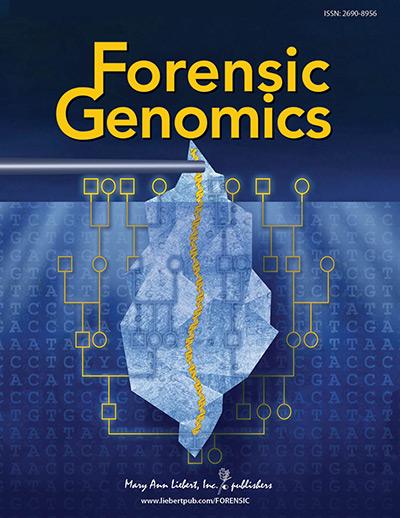
Credit: Mary Ann Liebert Inc., publishers
New Rochelle, NY, September 23, 2020 – Forensic DNA analysis enables new and increasingly sophisticated technology for solving cold cases. Through advances in DNA sequencing and bioinformatics, this relatively new and urgent field is enabling a broad range of cold cases, including homicides and other violent crimes, to be solved. The first issue of Forensic Genomics has just been published. Click here to read the issue now.
“Advances in forensic genomics and genealogy have helped solve an unprecedented number of cold cases in the past few years. Forensic Genomics will document and facilitate continued innovation in the field and drive validation and adoption of this exciting new technology for forensics professionals,” says Editor-in-Chief David Mittelman, PhD, Founder & Chief Executive Officer, Othram, Inc.
Incorporating robotics and automation into forensic workflows can help reduce casework backlogs in crime laboratories. An article by Kevin Miller PhD, Hamilton Company, and coauthors, describes the “Validation of a High-Throughput Automated Liquid Handling DNA Extraction System to Maximize Efficiency in Forensic Casework.”
An article by William Thomas, moderator of Mind Over Murder Podcast, provides a first-hand view of what it is like to suffer the unsolved murder of a loved one. Important insights for the future of the field are put forth.
The News section highlights new forensic DNA methods that are helping to solve cold cases. It focuses on the emergence of DNA sequencing as a more accurate method for collecting genetic information from challenging forensic evidence and also covers database tools for turning the genetic information into meaningful results.
###
Forensic Genomics is a new peer-reviewed journal that addresses how advances in genetic testing and genomic analysis can enable investigators to break through previously impenetrable forensic DNA barriers. Led by Editor-in-Chief David Mittelman, PhD, Founder & Chief Executive Officer, Othram, Inc., the Journal focuses on the use of DNA testing technologies, algorithms, artificial intelligence, and genealogical research methods to support human identification using inference tools and inductive reasoning. Forensic Genomics aims to accelerate the validation and adoption of new methods to support investigations that would be otherwise stalled with traditional testing methods. For complete information, visit the Forensic Genomics website
Mary Ann Liebert, Inc., publishers try’s most widely read publication worldwide. A complete list of the firm’s 90 journals, newsmagazines, and books is available on the Mary Ann Liebert, Inc., publishers website.
Media Contact
Kathryn Ryan
[email protected]
Original Source
https:/
Related Journal Article
http://dx.




